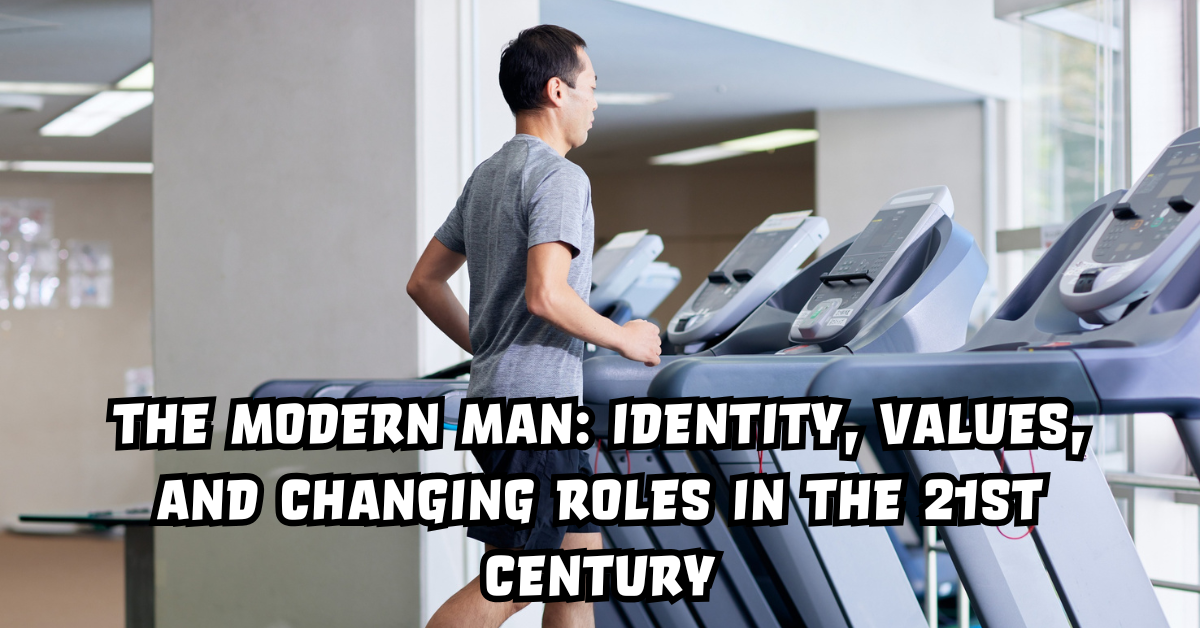The concept of the modern man has fascinated thinkers, writers, and cultural commentators for decades, reflecting ongoing conversations about identity, progress, and the role of men in society. Today, the phrase is more than a casual description—it embodies shifting cultural values, technological advancements, lifestyle adaptations, and the balance between tradition and modernity. To understand who the modern man’s is, one must look at how he navigates work, relationships, wellness, and personal growth while redefining masculinity in ways that align with contemporary expectations. The modern man’s is not defined merely by what he wears or how he behaves but by the values he upholds, the responsibilities he embraces, and the openness with which he adapts to change. This article explores the origins, social meaning, psychological aspects, and evolving roles of the modern man’s in today’s interconnected world.
Historical Origins of the Concept
The idea of the “modern man’s” first emerged in intellectual and literary circles during the early twentieth century, when industrialization and urbanization began reshaping human experiences. Scholars and writers used the term to differentiate between traditional men bound by agrarian roles and those adapting to the industrialized city environment. The modern man’s was portrayed as someone capable of adjusting to rapid changes, whether in employment, politics, or cultural life. Early definitions were heavily influenced by Western contexts, where masculinity was tied to productivity, rationality, and leadership. However, over time, the interpretation broadened, reflecting regional, cultural, and global perspectives. By the mid-twentieth century, the concept had shifted to include not just survival in industrial society but also participation in intellectual and cultural discussions. Thus, the modern man’s became an evolving archetype, continuously redefined by the forces of history, economics, and social transformation.
Characteristics of the Modern Man
To describe the modern man’s today requires understanding not only external behaviors but also internal values and aspirations. He is often defined by adaptability, emotional intelligence, and a willingness to embrace diversity. Unlike older generations where masculinity was equated with stoicism and dominance, the modern man’s values empathy, communication, and collaboration. His identity is multifaceted: he might be ambitious in his career while also prioritizing mental health and family life. Personal style, fitness, and grooming also play roles, though they no longer serve as sole markers of masculinity. More importantly, the modern man’s balances traditional responsibilities with contemporary ideals of equality and respect. This shift demonstrates that being a modern man’s is less about adhering to rigid norms and more about crafting an authentic self that resonates with both personal values and societal expectations.
Table 1: Key Traits of the Modern Man’s Compared to Traditional Masculinity
| Aspect | Traditional Masculinity | Modern Man’s Approach |
|---|---|---|
| Emotional Expression | Reserved, stoic | Open, emotionally intelligent |
| Career Focus | Sole provider role | Balanced with family and self |
| Relationships | Authority-driven | Partnership and collaboration |
| Wellness | Physical strength emphasized | Mental, physical, and emotional |
| Gender Equality | Minimal recognition | Active supporter of equality |
Psychological Dimensions of Modern Masculinity
The psychology of the modern man’s reveals a fascinating transition from rigid archetypes to fluid expressions of self. Mental health awareness has become a central theme, as more men openly discuss stress, anxiety, and the pressures of performance. Historically, men were discouraged from acknowledging vulnerability, but today vulnerability is increasingly recognized as strength. The modern man’s values introspection and personal growth, often seeking therapy, mindfulness practices, or wellness routines to navigate life’s complexities. Furthermore, research shows that this psychological flexibility contributes to resilience in the face of economic uncertainty, changing family dynamics, and societal shifts. The modern man’s is not immune to challenges, but his willingness to confront and adapt to them demonstrates an evolved form of masculinity that merges strength with empathy. This psychological shift not only benefits individuals but also strengthens communities by encouraging healthier and more balanced relationships.
Work and Professional Identity
The workplace has long been central to male identity, but for the modern man’s, professional life is less about dominance and more about purpose. While ambition and achievement remain important, success is no longer measured solely by financial gain but by fulfillment, balance, and impact. Many modern men pursue careers that allow for flexibility, creativity, and alignment with personal passions. Remote work, entrepreneurial ventures, and cross-disciplinary fields have also reshaped how men perceive their professional identity. Importantly, the modern man seeks workplaces that value inclusivity and equality, where collaboration is celebrated over competition. This approach not only reflects changing societal norms but also ensures long-term satisfaction and productivity. As such, the modern man exemplifies a professional ethos that values ethical practices, personal well-being, and meaningful contribution as much as financial stability or traditional status symbols.
Relationships and Emotional Intelligence
One of the defining features of the modern man is his approach to relationships, whether romantic, familial, or social. Emotional intelligence plays a significant role, allowing him to communicate effectively, empathize with others, and navigate conflict constructively. In contrast to older models of masculinity that discouraged vulnerability, the modern man values openness and emotional reciprocity. This evolution is especially evident in fatherhood, where contemporary men are more engaged in nurturing, caregiving, and daily involvement in their children’s lives. Friendships, too, have become spaces for vulnerability and support rather than competition. These shifts not only strengthen bonds but also challenge stereotypes about men’s inability to connect deeply. As society continues to value partnership and equality, the modern man embodies these principles, redefining masculinity not as dominance but as a capacity for care, respect, and mutual understanding.
Lifestyle and Cultural Influence
Lifestyle choices provide another window into the identity of the modern man. Health-conscious diets, fitness routines, and an interest in sustainability have become markers of this generation’s priorities. Unlike past decades, where indulgence or materialism were common symbols of success, the modern man often gravitates toward minimalism, eco-conscious consumption, and experiences over possessions. Popular culture, including films, literature, and social media, amplifies these trends, offering platforms where men can share diverse identities. Moreover, fashion and grooming have become less about conformity and more about self-expression. The modern man is comfortable experimenting with style, embracing multicultural influences, and prioritizing authenticity. These lifestyle elements demonstrate that the modern man is shaped not just by societal expectations but also by his conscious choices, aligning personal identity with broader global concerns such as sustainability, inclusivity, and innovation.
Table 2: Lifestyle Priorities of the Modern Man
| Category | Focus Areas of the Modern Man | Examples |
|---|---|---|
| Health & Wellness | Balance of mind and body | Yoga, mindfulness, fitness apps |
| Fashion & Grooming | Personal expression | Sustainable fashion, skin care |
| Technology Use | Integration into daily life | Smart devices, remote work tools |
| Social Responsibility | Environmental and cultural awareness | Volunteering, eco-friendly habits |
| Leisure & Culture | Experiences over possessions | Travel, learning, community events |
The Role of Technology
Technology plays a profound role in shaping the modern man’s identity and habits. From professional life to personal relationships, digital tools are integral to how men interact with the world. Smartphones, wearable devices, and online platforms influence how they manage health, finances, and communication. Social media has provided a stage for men to redefine masculinity by showcasing diverse lifestyles, sharing personal struggles, and building communities around shared values. At the same time, technology brings challenges, such as digital dependency and blurred boundaries between work and personal life. The modern man’s approach to technology is therefore a balancing act—leveraging digital tools for growth and connectivity while maintaining mindfulness to prevent overreliance. This dynamic illustrates how technology is not simply a convenience but a fundamental component of identity construction in the twenty-first century.
Challenges Facing the Modern Man
Despite these advancements, the modern man faces a unique set of challenges. Balancing professional ambitions with personal commitments often leads to stress, while societal expectations about masculinity remain deeply ingrained. The pressure to be emotionally open yet resilient, financially stable yet flexible, can create contradictions. Economic uncertainties, shifting job markets, and rising costs of living add further complexity. Social challenges, including the need to confront ingrained gender stereotypes and support equality, also require constant negotiation. Mental health struggles, particularly depression and anxiety, remain significant concerns. The modern man must navigate these obstacles with resilience, adaptability, and self-awareness. In many ways, these challenges highlight the ongoing evolution of masculinity, where progress is measured not by the absence of struggle but by the capacity to adapt and grow in the face of it.
Global Perspectives on the Modern Man
The modern man is not a universal figure but one shaped by cultural and regional contexts. In Western societies, he is often associated with progressive values, gender equality, and individuality. In Eastern cultures, the modern man may embody respect for tradition while integrating contemporary ideals of education, career, and global connectedness. In developing countries, the modern man frequently faces the tension between traditional family roles and the opportunities presented by globalization. This diversity underscores that the modern man is less about a singular identity and more about adaptability across contexts. Whether in urban cities or rural communities, the common thread is a redefinition of masculinity that values empathy, responsibility, and forward-thinking. By examining these global variations, one can appreciate how cultural frameworks both constrain and enrich the evolving meaning of what it means to be a modern man.
Conclusion
The modern man is a figure in constant evolution, reflecting the complexities and opportunities of the 21st century. He is not defined by rigid stereotypes but by adaptability, empathy, and authenticity. From embracing emotional intelligence and equality in relationships to balancing professional ambitions with personal fulfillment, the modern man represents a holistic identity that integrates tradition with progress. Lifestyle, technology, and global perspectives continue to influence his values, making him both a product of his time and a driver of societal change. As cultural expectations shift, the modern man stands as a reminder that masculinity is not fixed but fluid, requiring ongoing reflection and reinvention. Ultimately, the modern man is less about conforming to external labels and more about living a life that reflects balance, purpose, and respect for self and others.
FAQs
1. What defines a modern man today?
A modern man is defined by adaptability, empathy, emotional intelligence, and balance between personal, professional, and social responsibilities.
2. How does the modern man differ from traditional masculinity?
Unlike traditional masculinity, which emphasized stoicism and authority, the modern man values openness, equality, and holistic well-being.
3. What role does technology play in shaping the modern man?
Technology shapes how the modern man works, communicates, and builds identity, while also creating challenges of digital dependency.
4. Why is emotional intelligence important for the modern man?
Emotional intelligence allows the modern man to build stronger relationships, handle stress effectively, and redefine masculinity through empathy.
5. Is the modern man the same across cultures?
No, the modern man varies globally; cultural values influence how masculinity is expressed, though adaptability remains a common theme.











